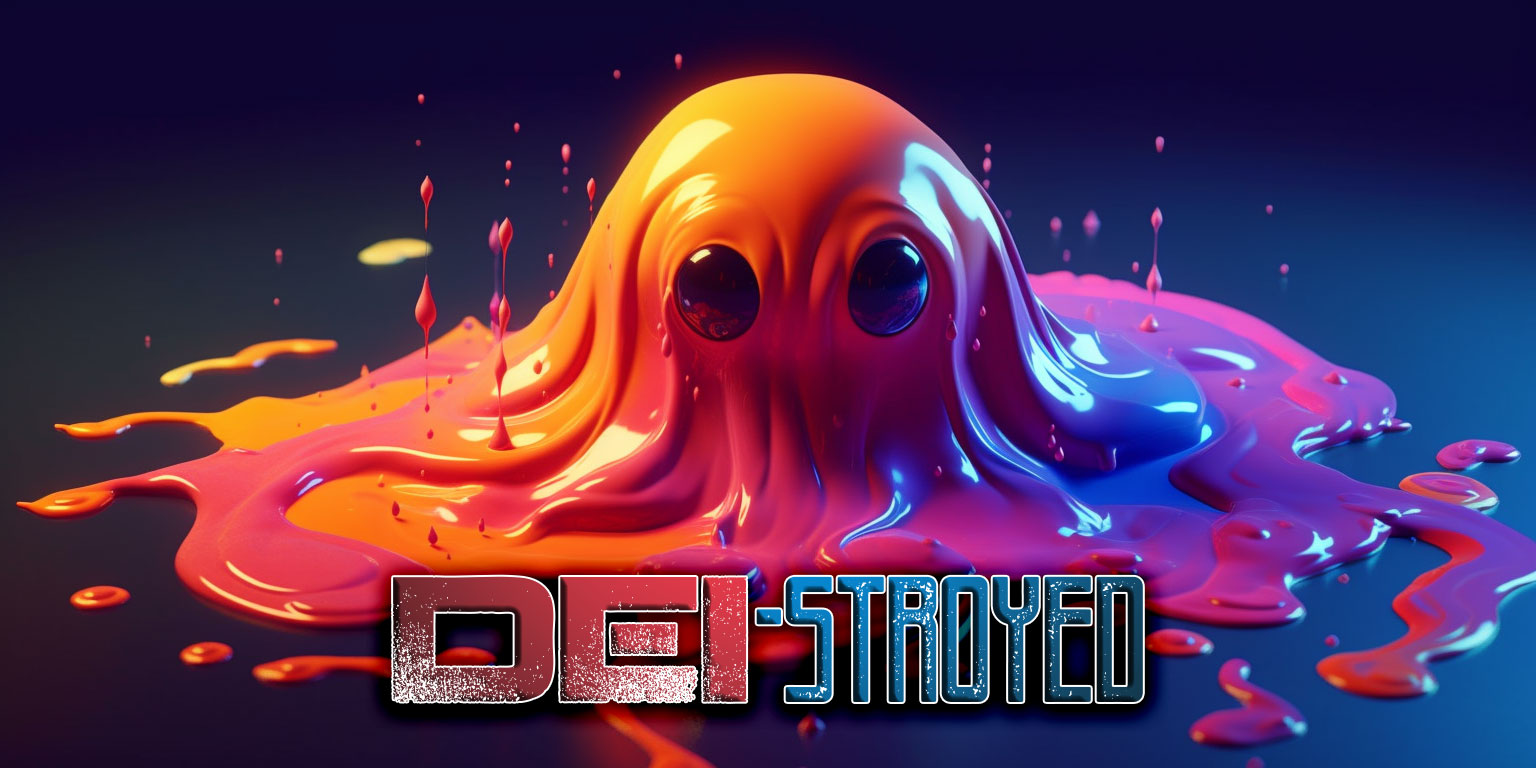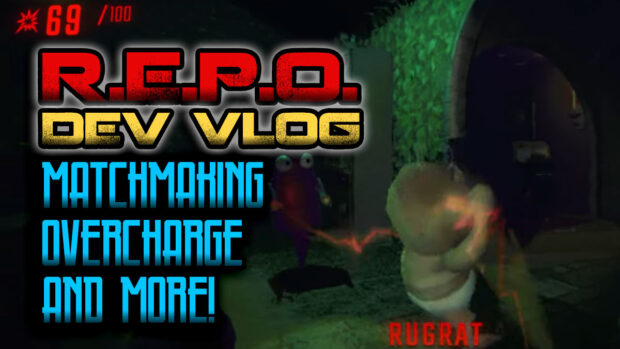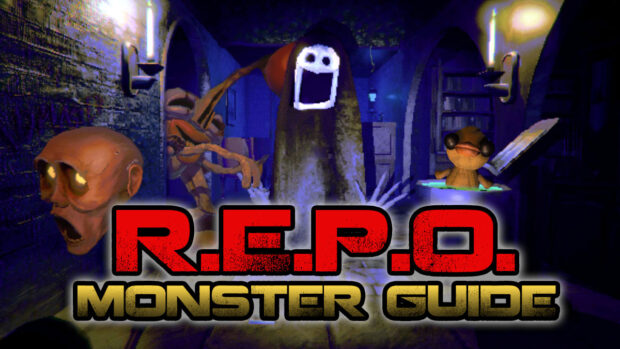
- arrow_back Home
- keyboard_arrow_right Gaming Fails
The DEI-Struction of Gaming
Gaming Fails 2 101 Ayefkay August 20, 2024

As you find yourself navigating the changing landscape of gaming, you might find yourself wondering…what the hell happened?
Surrounded by the androgynous and sexually ambiguous characters of woke games that put their overly-forced messaging over aesthetics, organic storytelling, or character design – it honestly seems like the last thing on any modern game developers mind is, “How can we make this more fun?”.
And it shows, painfully so.
Diversity, Equity, and Inclusion (DEI) initiatives have become a widespread infection across multiple industries in recent years, including and especially gaming. Originally designed to promote a more “inclusive and welcoming environment” for all players, the unnatural escalation of DEI efforts, focusing more on virtue signaling than game design, has seemed to mutate into a race of who can make the most impact, for better or worse.
I think it’s pretty obvious at this point that an overemphasis of these initiatives has harmed the creative direction of games, alienated core audiences, and obliterated the potential sales of once promising games and entire franchises.
So for funsies, we’re going to take a look at how DEI has influenced the gaming industry and look at specific cases where backlash against these super-helpful initiatives have impacted both devs and their intended audiences.
But Just What IS DEI in Gaming?
Before delving into specific cases, I think it would be helpful to clearly define what I would consider DEI in the context of gaming. DEI aims to create more diverse, equitable, and inclusive environments in the workplace, education, and entertainment industries. In gaming, this typically manifests in:
- Character Representation: Efforts to forcefully include characters of different genders, races, ethnicities, sexual orientations, and body types.
- Narrative and Themes: A focus on woke messages that are not-so-subtly embedded into superficial stories that attempt to highlight “underrepresented” voices or address perceived social justice issues.
- Workplace Inclusion: Strongly encouraging (but definitely not mandating *wink legal team*) diverse hiring practices and training within development studios and consulting teams to shape the content and direction of games.
While the intent behind DEI is seemingly noble, the execution in gaming has led to significant issues, particularly when core gameplay and story take a backseat to these initiatives. So…every time.
Ok, so let’s jump into some examples!

Battlefield V | DICE | Electronic Arts
Case 1: Battlefield V | 2018
#NotMyBattlefield
One of the most notable examples of DEI stirring the pot is Battlefield V, developed by DICE and published by Electronic Arts (EA). When the game’s trailer was first revealed, the masses went wild. The trailer prominently featured a female soldier with a prosthetic arm in a World War II setting…I don’t even know what to say about that. Why to all of the above?
The only imagination they put into this game is their new format for squeezing every cent out of their consumer. This game is more about social justice and outfits than actual war.
Obviously, Battlefield fans were livid. The woke changes being ridiculously historically inaccurate and immersion-breaking, it was but a sign of things to come.
Despite the backlash, the woke devs stood firm in their decisions, emphasizing that inclusivity was a core part of their creative direction and argued that the inclusion of female soldiers was meant to reflect modern values rather than historical accuracy…bad idea.
The response from players (unsurprisingly) was overwhelmingly negative, with the hashtag #NotMyBattlefield trending on social media. The controversy caused Battlefield V’s sales plummeting well below expectation, paling in comparison to previous titles.
This catastrophe highlighted how DEI efforts can often clash with audience expectations, particularly in games that gamers expect to immerse themselves in the experience. By prioritizing inclusivity over authenticity, the developers alienated a large portion of their core audience, leading to a well-deserved metaphorical kick in the ass.

The Last of Us Part II | Naughty Dog
Case 2: The Last of Us Part II | 2020
Changing Everything in the Worst Ways Imaginable
Naughty Dog’s The Last of Us Part II is another good example of where DEI-driven initiatives destroyed audience expectations. Despite the game’s technical achievements for its time, The Last of Us Part II was immediately smacked down for its portrayal of characters and the agenda-driven direction of the story. Sacrificing any semblance of coherent storytelling for the sake of pushing woke messaging, honestly, The Last of Us Part II just seemed like it was put together by throwing darts at a board full of inclusive buzzwords.
Bad writing. Bad story. Bad ending. Ruined the amazing experience that The Last of Us 1 was for me. Good job. 1/10.
A couple of real “wtf” moments was the game’s treatment of Joel from the first game and the addition of a new muscle-bound female protagonist, Abby. Sorry, but Abby’s design was an extremely unrealistic portrayal of a woman fighting in a post-apocalyptic world and an obvious and deliberate attempt to challenge traditional gender norms for some social justice brownie points. And if you thought that was enough, the game also featured a veritable host of LGBTQ characters and themes, which was extremely heavy-handed and not received well in the slightest.
While The Last of Us Part II claims to have commercial success, the backlash was intense enough that it led to players reviewing the game into the shadow realm and raised widespread concerns about DEI being pushed at the expense of organic storytelling.
The onslaught highlighted a growing divide between developers who prioritize “inclusive” narratives and players who feel that such efforts come at the cost of authentic, engaging gameplay.

Saint’s Row (2022) | Deep Silver Volition
Case 3: Saints Row (Reboot) | 2022
A Step by Step Guide on How to Lose Your Core Audience
The reboot of Saints Row, released in 2022, serves as another great example of how over-prioritizing DEI can alienate a core fanbase. The original Saints Row series was known for its super-fun and over-the-top gameplay along with a satirical take on gang culture. Sounds fun, right?
However, the reboot took a…different…direction by introducing a more diverse and socially conscious cast, with a focus on building a narrative around inclusivity and modern values.
Sorry, all the fun just jumped out a window.
I was so looking forward to this game. The last saints row I played was SR 2 and that game played like a masterpiece compared to this garbage!
While these changes were intended to appeal to a broader, more modern audience (the preamble of despair), they ended up driving away long-time fans of the series who felt that the irreverence and good times had been stripped away. It became obvious that the attempt to “modernize” and make the characters more socially conscious came across as obscenely forced and out of touch with what made the original games so great in the first place.
The reboot (again, unsurprisingly) was met with drowning sales and slamming reviews, with many attributing its failure to the developers’ attempts to inject their own DEI themes into a franchise that had previously thrived on its innately politically incorrect humor and outrageous content.
Instead of expanding the audience, the game failed to satisfy both new and old players, resulting in a dumpster fire performance and doomed sales.

Suicide Squad: Kill the Justice League | Rocksteady Studios
DEI Consultants, The Root of Evil
In most cases, the recurring themes here have been the role of the now infamous, DEI consultant. Many studios now make these not-at-all pressured decisions to work with external consultants to ensure that their games meet “modern standards of inclusivity”. However, with these progenitors of destruction imposing restrictions or guiding creative decisions heavily towards their woke ideologies, it makes a mess.
All too often, it falls on the gamers to express their frustration that studios are making these horrible decisions to bend to pressure rather than focusing on what the audience wants.
Fun. How horrible, right?
Developers, too, are sometimes caught in the middle. Some devs have tried to push back against what they see as unnecessary changes, but the pressure from both internal teams and external consultants can make this difficult.
A recent example of this came out in IGN’s hit piece of the new Game Science game Black Myth: Wukong, which has already shattered the record for most concurrent players on Steam.

The game looks absolutely amazing but, despite rave reviews from gamers, following their non-compliance to sign up with the nose ring mafia’s DEI consultants, Sweet Baby Inc. for $7,000,000 – the Chinese indy devs were bashed by IGN’s Rebekah Valentine for a mistranslation and anything else they could potentially try to carelessly toss into a negative light.
>Chinese media: ‘Black Myth: Wukong’ refused to be extorted $7 million by SweetBaby.
English:
The reason why the team behind “Black Myth: Wukong” has been subjected to persistent sexist attacks and slander since their first promotional video is because they have consistently… pic.twitter.com/P94rUpVnuI
— Pirat_Nation
(@Pirat_Nation) June 14, 2024
The Horizon Before Us
While DEI initiatives claim to foster a more “inclusive” (ok, last air quote) environment in gaming, there’s no doubt that overemphasis on these forced efforts has caused friction with audiences and irreparable damages to studios.
Developers need to listen to player feedback, not overpaid consultants or their woke community managers, and consider how DEI initiatives can affect their game before signing on to the dark side.
In the end, the ideals of everyone being happy sound great, it’s just unrealistic. The cases of Battlefield V, The Last of Us Part II, and Saints Row demonstrate that when DEI initiatives are forced and at odds with the core gameplay experience, it leads to instant backlash and tanking sales.
The challenge moving forward will be for devs to find their own voices and create their own stories, independent of the violations that are brought about by coalescing their games with the unwanted, the unnecessary, and the un-fun.
WANT MORE?
CHECK THESE OUT NEXT!
About Report AFK
A place for gamers, by gamers, untarnished by legacy gaming media and their herds of sheeple.
Site Links
Copyright 2025 ReportAFK.com








Be the first to leave a comment